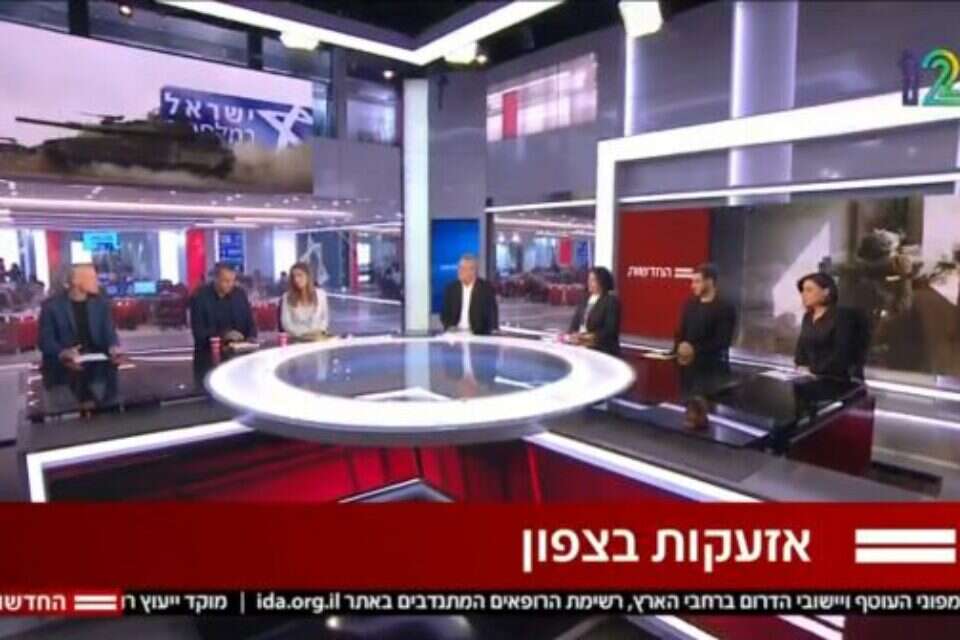The mass of former security personnel who have been in the studios since October 7 was, no doubt, unusual. In wartime, news broadcasts naturally spilled over into the wee hours of the night, and words were needed to work the initial shock. But no one prepared us for the nadir to which the security analysts in the studios led. There were those who did politics, who promoted a career, a personal struggle, an agenda or the "day after." There were also days and hours when endless interpretations could not be identified with reality, but there seemed to be agreement in the studios.
The complex relationship between the military and the media, which also includes intrigue and political interests, stems from the unique structure of the country's apparatuses. In Israel, where almost everyone is drafted, both for duty and reserve duty (including members of the media), the media is a de facto partner in the security agenda.
The IDF Spokesperson's Office is the only liaison between media personnel and military personnel (full disclosure, I served there as an officer). In general, the unit's recent graduates integrate almost automatically into the newspapers, radio and television channels (this can be clearly seen on channels 11, 12 and 13). Later, some of them will serve in the reserves, and along the way will accumulate information and connections, which will be useful when they return to their positions in the media. Former IDF Spokesperson Ronen Manelis is an example of this. He is currently serving in the unit's reserves, and will later return to the position of security/political analyst at the corporation.
At the same time, close ties are also established between military officers and members of the media. Last week, senior journalist Ehud Yaari provided a glimpse into the course of events, when he allegedly threatened Minister Miri Regev and in the process exposed his extensive ties with officers in Military Intelligence. Senior security officials whom media personnel want to visit receive exposure and are usually promoted (perhaps this explains the small number of kippah-wearing among senior military officials). Some of them later get into politics and these connections become even more meaningful.
In the pre-October 7 era, at the height of the political struggle, media interviews put the question on the table: Who will senior military officials obey? They tried to establish a new hierarchy, in which the judicial system is sovereign and the army disobeys it. The court completed this process this week by placing itself above the legislature in disqualifying the cause of reasonableness by a majority of only one judge.
In the newly created hierarchy, military officials feel less accountable to public representatives. This could be seen in the responses of system leaders to questions asked by Knesset members and ministers. Despite the legitimacy of the ministers' questions, the media made sure to denounce them as attacking the army in wartime. In these times, the army and the media lean on each other and work in harmony to win the war. This time, the cooperation was also intended to win the internal struggle that was defined as a danger. The choice of what to talk about and when, both in the media and in the military, depends on the shared values that these two bodies want to promote.
It is clear that senior military officials see themselves as responsible not only for military activity, but also for the establishment of legitimate morality and values. With the participation of the media and the judiciary, they are now working to curb the explosive sentiment of nationalism, which they identify as nationalism
The outburst of national and religious feelings that arose during the war surprises everyone, but for the IDF it is a real blow. A phenomenon that must be restrained, controlled, perhaps even eradicated. The chief of staff, who was reluctant to go out to the public in light of the insubordination in the army, was quick to respond to incidents in which soldiers externalized religious and national feelings. His reprimands with soldiers and commanders were public and discussed in the studios. The discussions were intended to reestablish the universal secular morality of the military.
It is clear that senior military officials see themselves as responsible not only for military activity, but also for the establishment of legitimate morality and values. In cooperation with the media and the judiciary, they are now working to curb the explosive sentiment of nationalism, which they identify as nationalism, and of religion, which they identify as Christianity. This sentiment is clearly identified with the government, with representatives of the public, with the public, and now with the soldiers as well.
Wrong? We'll fix it! If you find a mistake in the article, please share with us

